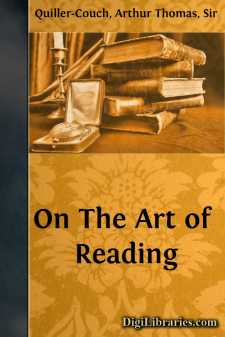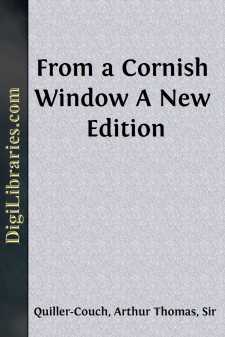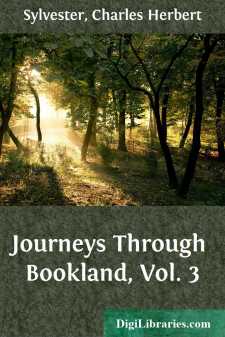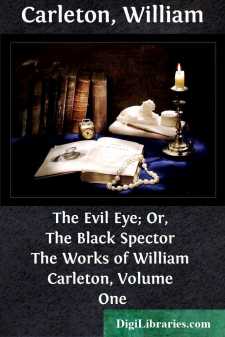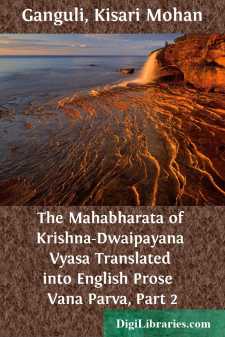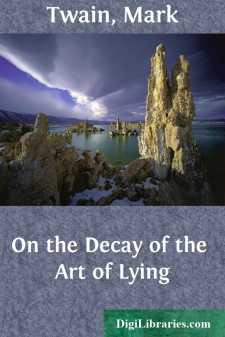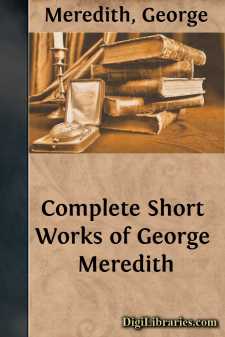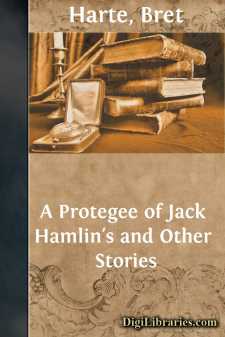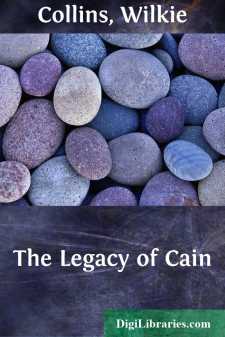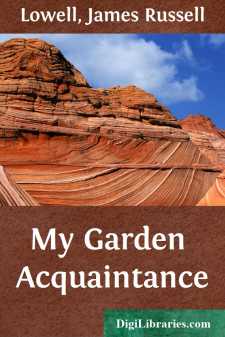Literary Collections
- American 84
- Ancient, Classical & Medieval 14
- Asian 1
- Australian & Oceanian 1
- Canadian 55
- Continental European 121
- English, Irish, Scottish, Welsh 179
- Essays 160
- General 24
- Letters 46
- Middle Eastern 1
Literary Collections Books
Sort by:
LECTURE I INTRODUCTORY WEDNESDAY, OCTOBER 25, 1916 I In the third book of the "Ethics", and in the second chapter, Aristotle, dealing with certain actions which, though bad in themselves, admit of pity and forgiveness because they were committed involuntarily, through ignorance, instances 'the man who did not know a subject was forbidden, like Aeschylus with the Mysteries,' and...
more...
DEDICATION. MY DEAR WILLIAM ARCHER, Severe and ruthlessly honest man that you are, you will find that the levities and the gravities of this book do not accord, and will say so. I plead only that they were written at intervals, and in part for recreation, during years in which their author has striven to maintain a cheerful mind while a popular philosophy which he believed to be cheap took possession...
more...
Last spring I found a pumpkin seed, And thought that I would goAnd plant it in a secret place, That no one else would know,And watch all summer long to see It grow, and grow, and grow,And maybe raise a pumpkin for A Jack-a-lantern show. I stuck a stick beside the seed, And thought that I should shoutOne morning when I stooped and saw The greenest little sprout!I used to carry water...
more...
by:
William Carleton
CHAPTER I. Short and Preliminary. In a certain part of Ireland, inside the borders of the county of Waterford, lived two respectable families, named Lindsay and Goodwin, the former being of Scotch descent. Their respective residences were not more than three miles distant; and the intimacy that subsisted between them was founded, for many years, upon mutual good-will and esteem, with two exceptions...
more...
SECTION CXLV (continued from previous e-book) And the ruddy geese, and the gallinules and the ducks and the karandavas and the plavas and the parrots and the male kokilas and the herons in confusion flew in all directions, while some proud elephants urged by their mates, as also some lions and elephants in rage, flew at Bhimasena. And as they were distracted at heart through fear, these fierce animals...
more...
by:
Mark Twain
Observe, I do not mean to suggest that the custom of lying has suffered any decay or interruption—no, for the Lie, as a Virtue, A Principle, is eternal; the Lie, as a recreation, a solace, a refuge in time of need, the fourth Grace, the tenth Muse, man's best and surest friend, is immortal, and cannot perish from the earth while this club remains. My complaint simply concerns the decay of the...
more...
by:
George Meredith
THE WHITE ROSE CLUB In those lusty ages when the Kaisers lifted high the golden goblet of Aachen, and drank, elbow upward, the green-eyed wine of old romance, there lived, a bow-shot from the bones of the Eleven Thousand Virgins and the Three Holy Kings, a prosperous Rhinelander, by name Gottlieb Groschen, or, as it was sometimes ennobled, Gottlieb von Groschen; than whom no wealthier merchant bartered...
more...
by:
Bret Harte
A PROTEGEE OF JACK HAMLIN'S.I.The steamer Silveropolis was sharply and steadily cleaving the broad, placid shallows of the Sacramento River. A large wave like an eagre, diverging from its bow, was extending to either bank, swamping the tules and threatening to submerge the lower levees. The great boat itself—a vast but delicate structure of airy stories, hanging galleries, fragile colonnades,...
more...
by:
Wilkie Collins
CHAPTER I. THE GOVERNOR EXPLAINS. At the request of a person who has claims on me that I must not disown, I consent to look back through a long interval of years and to describe events which took place within the walls of an English prison during the earlier period of my appointment as Governor. Viewing my task by the light which later experience casts on it, I think I shall act wisely by exercising...
more...
ONE of the most delightful books in my father's library was White's "Natural History of Selborne." For me it has rather gained in charm with years. I used to read it without knowing the secret of the pleasure I found in it, but as I grow older I begin to detect some of the simple expedients of this natural magic. Open the book where you will, it takes you out of doors. In our broiling...
more...


